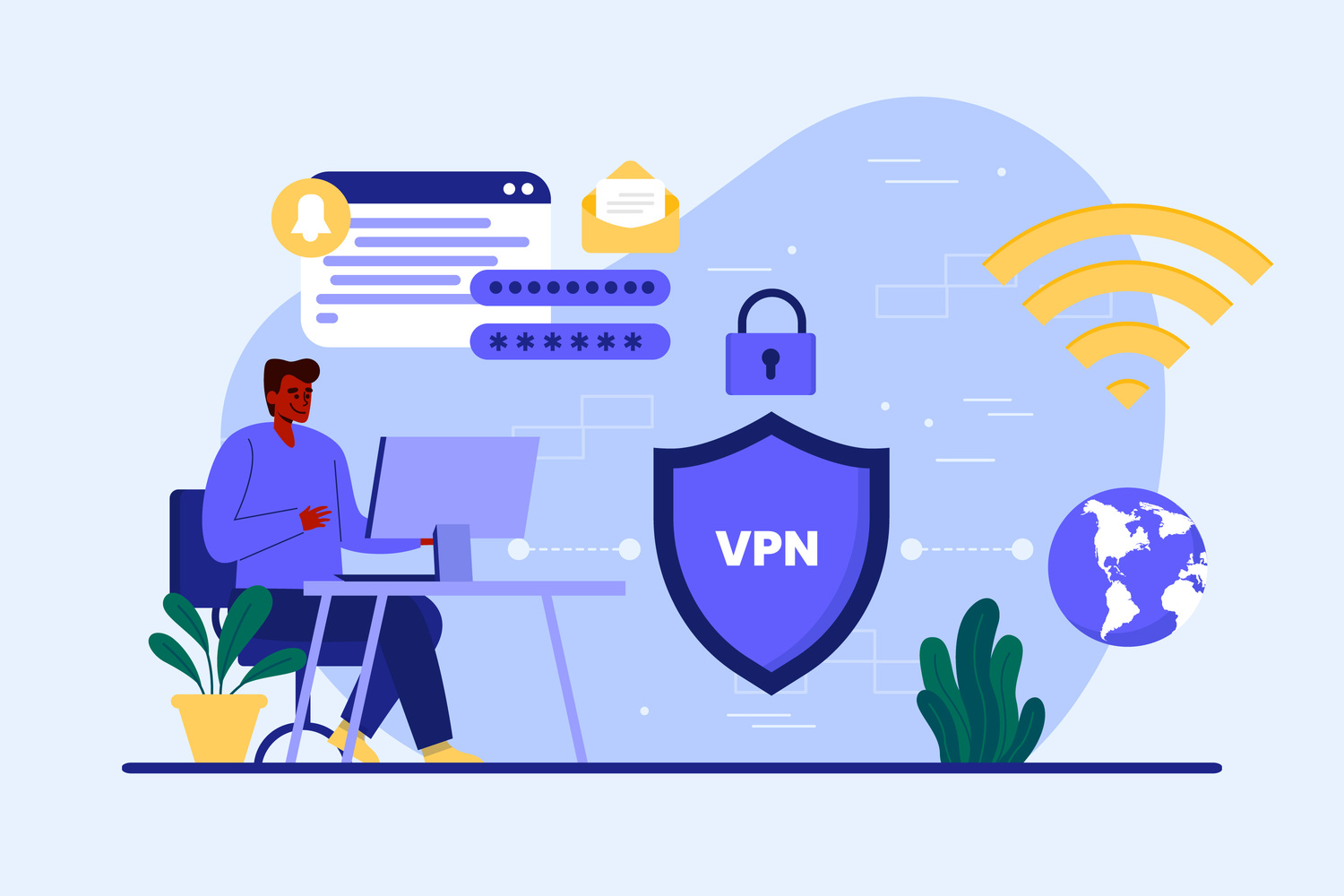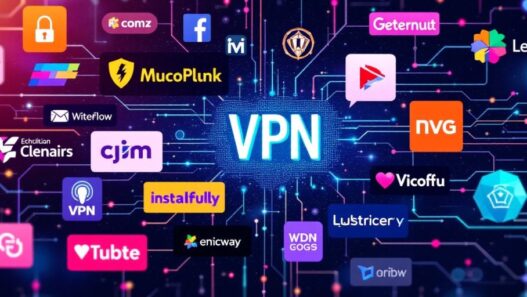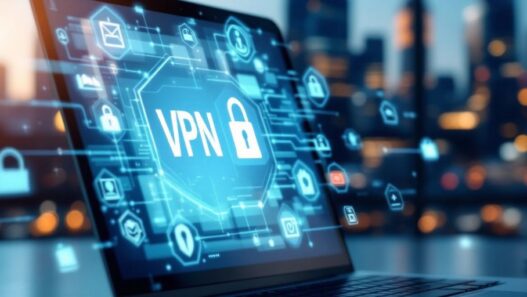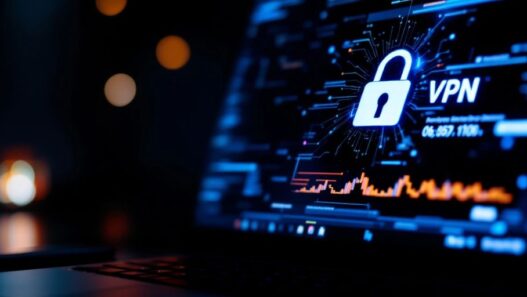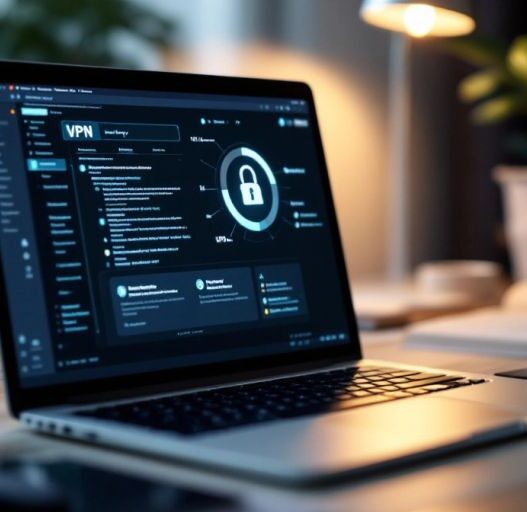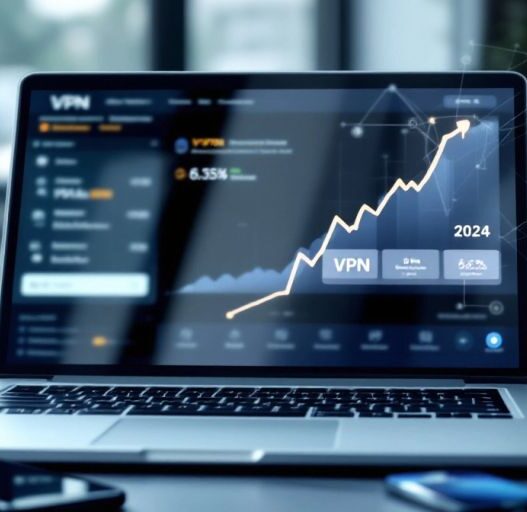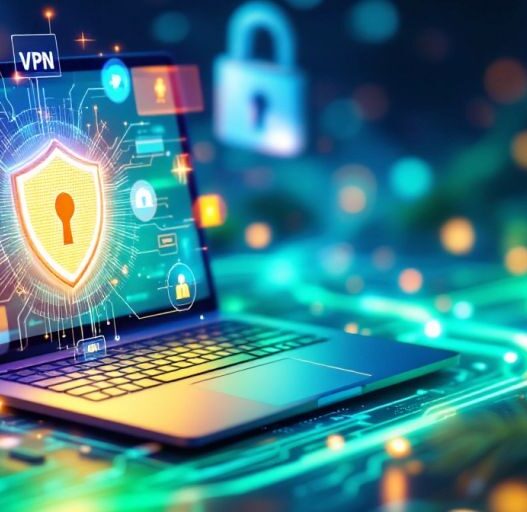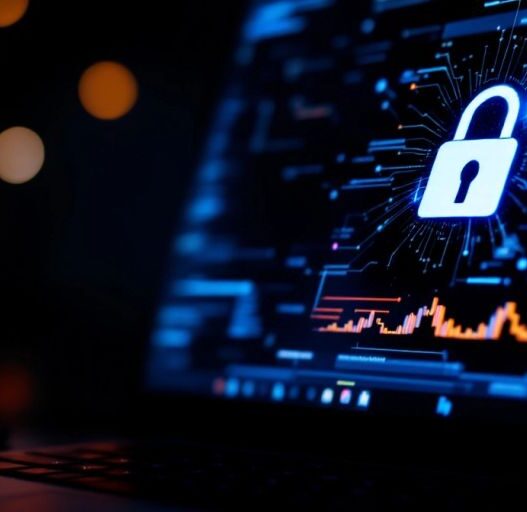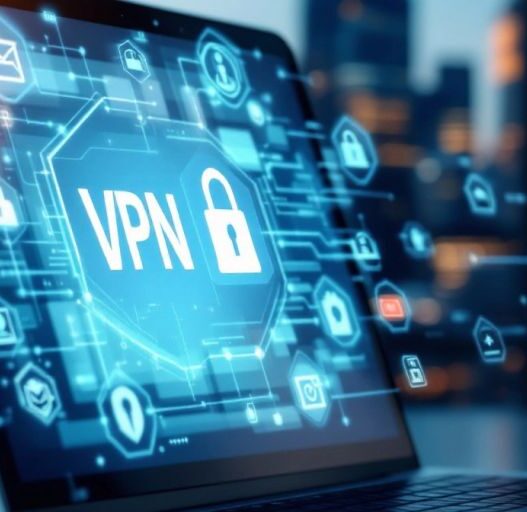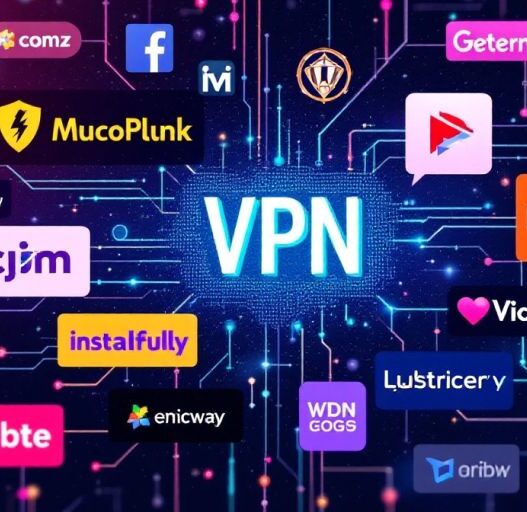How VPN Encryption Works
VPNs, or Virtual Private Networks, are essential tools for anyone looking to secure their online activities. VPN encryption explained refers to the methods used to protect data as it travels over the internet. By encrypting data, VPNs ensure that sensitive information remains private and secure from prying eyes.
Establishing a Connection to a VPN Server
- The user’s device connects to a VPN server.
- The VPN client authenticates the device, ensuring it is allowed to access the network.
- Once authenticated, the VPN begins the encryption process.
The Encryption Process: From Plaintext to Ciphertext
Data encryption VPN works by transforming readable information (plaintext) into a scrambled format (ciphertext). This process involves:
- Encryption algorithm: A mathematical function that scrambles the data.
- Encryption key: A unique code needed to unlock the encrypted data.
- Key length: Longer keys provide stronger security. For example, a 256-bit key is much harder to crack than a 128-bit key.
Creating an Encrypted Tunnel
After encryption, the VPN creates a secure tunnel for the data to travel through. This tunnel protects the data from being intercepted by hackers or other malicious entities. The data packets are wrapped in additional layers of encryption, ensuring that even if they are intercepted, they remain unreadable.
Encapsulation and Decryption
When the encrypted data reaches the VPN server, the outer layers are removed, and the original data is decrypted. This process ensures that only the intended recipient can read the information.
VPN encryption is crucial for protecting personal data from cyber threats and maintaining privacy online.
In summary, understanding how VPNs encrypt data is vital for anyone concerned about online security. By using top VPN services, users can ensure their data remains safe and private. Always choose a VPN that offers strong encryption methods, such as AES-256, to maximize your online protection.
Types of VPN Encryption Protocols

VPNs, or Virtual Private Networks, are essential tools for securing online activities. They protect users by encrypting data and masking IP addresses, making it difficult for anyone to track online behavior. Understanding the different secure VPN protocols is crucial for choosing the right service. Here, we explore various encryption methods used in VPNs.
Symmetric Encryption: AES and DES
Symmetric encryption uses the same key for both encrypting and decrypting data. This means both the sender and receiver must know the key. AES (Advanced Encryption Standard) is the most popular symmetric encryption method today, known for its strong security. It can use key lengths of 128, 192, or 256 bits, with 256 bits being the most secure.
Asymmetric Encryption: RSA
Asymmetric encryption uses two different keys: a public key for encryption and a private key for decryption. This method enhances security because the private key never needs to be shared. RSA (Rivest-Shamir-Adleman) is a widely used asymmetric encryption algorithm that helps secure data transmission over the internet.
Public-Key vs. Private-Key Encryption
- Public-Key Encryption: Uses two keys (public and private) for secure communication.
- Private-Key Encryption: Uses a single key for both encryption and decryption.
Both methods have their advantages, but public-key encryption is generally more secure for sharing sensitive information.
Transport Layer Security (TLS)
TLS is a protocol that ensures secure communication over a computer network. It provides authentication between users and servers, preventing hackers from impersonating either side. TLS is often used in conjunction with other encryption methods to enhance security.
In summary, understanding these encryption methods is vital for anyone looking to protect their online privacy.
Choosing the right VPN service can make a significant difference in your online security. Some of the top VPN services offer robust encryption protocols, ensuring your data remains safe. Always consider the encryption methods used by a VPN before making a choice.
By using a VPN, users can enjoy a safer online experience, protecting themselves from cyber threats and maintaining their privacy.
Benefits of Using VPN Encryption
In today’s digital age, where many people work remotely and share sensitive information online, using a Virtual Private Network (VPN) is essential. VPNs help secure your data and keep your online activities private. Here are some key benefits of using VPN encryption:
Protection from Cybercriminals
VPN encryption acts as a shield against hackers. It makes your data unreadable to anyone trying to steal it. This is especially important when using public Wi-Fi, which is often insecure.
Securing Public Wi-Fi Connections
When connecting to public Wi-Fi, your data is vulnerable. A VPN encrypts your connection, ensuring that your personal information remains safe from prying eyes. This is crucial for anyone who frequently uses coffee shops, airports, or other public networks.
Maintaining Privacy from ISPs and Governments
VPNs hide your online activities from Internet Service Providers (ISPs) and government surveillance. This means that your browsing history and personal data are kept private, allowing you to surf the web without fear of being monitored.
Ensuring Data Integrity
Using a VPN helps maintain the integrity of your data. It prevents unauthorized access and ensures that the information you send and receive remains unchanged. This is vital for businesses and individuals who handle sensitive information.
VPN encryption is not just a luxury; it’s a necessity in today’s connected world.
In conclusion, using a VPN with strong encryption offers numerous benefits, including protection from cyber threats, secure public Wi-Fi usage, privacy from ISPs and governments, and data integrity. For those looking to enhance their online security, consider top VPN services like NordVPN, Surfshark, or Private Internet Access. These services provide robust encryption and privacy features. Take action now to protect your online presence!
Risks of Not Using VPN Encryption

In today’s digital age, using a Virtual Private Network (VPN) is essential for protecting sensitive information. Without VPN encryption, users expose themselves to various risks that can compromise their data and privacy. Here are some of the significant dangers:
Exposure to Man-in-the-Middle Attacks
- Man-in-the-Middle (MITM) attacks occur when a hacker intercepts communication between two parties. This can happen on unsecured networks, like public Wi-Fi, where attackers can easily access unencrypted data.
- Hackers can steal personal information, such as passwords and credit card numbers, without the user even knowing.
- Using a VPN helps prevent these attacks by encrypting the data being transmitted, making it unreadable to anyone who intercepts it.
Data Theft on Unsecured Networks
- Public Wi-Fi networks are often unprotected, making them prime targets for cybercriminals.
- Sensitive information sent over these networks can be easily captured by hackers.
- VPN encryption secures your data, ensuring that even if it is intercepted, it remains protected and unreadable.
Privacy Breaches and Surveillance
- Internet Service Providers (ISPs) can monitor your online activities and sell your data to advertisers or other third parties.
- Without VPN encryption, your browsing history and personal information are vulnerable to being tracked.
- A VPN hides your IP address, providing an extra layer of privacy and preventing unwanted surveillance.
Vulnerability to Cyber Attacks
- Cyber attacks can take many forms, including phishing and ransomware, which can exploit unencrypted data.
- Users without VPN protection are at a higher risk of falling victim to these attacks.
- VPNs encrypt your internet traffic, making it much harder for attackers to access your data.
In summary, not using VPN encryption can lead to serious risks, including data theft, privacy breaches, and exposure to cyber attacks. Protecting your online activities with a reliable VPN is crucial for maintaining your security and privacy.
Conclusion
In summary, understanding how VPN encryption works is essential for anyone looking to protect their online activities. VPNs create a secure tunnel for your data, making it hard for hackers, governments, and even your internet provider to see what you’re doing. By using strong encryption methods like AES, your information is scrambled, ensuring that only you and the intended recipient can read it. This is especially important in today’s world, where cyber threats are everywhere. So, whether you’re browsing on public Wi-Fi or just want to keep your data private, using a VPN is a smart choice to keep your information safe.
Frequently Asked Questions
What does VPN encryption do?
VPN encryption scrambles your online data so that it can’t be read by anyone who shouldn’t see it. This keeps your internet activities private and safe from hackers.
Is my data safe when using a VPN?
Yes, when you use a VPN, all the data sent between your device and the VPN server is encrypted. This means that your information is protected from people trying to steal it.
How can I check if my VPN is working correctly?
You can check your VPN by disconnecting and then reconnecting to see if your IP address changes. Also, tools like GlassWire or Wireshark can help you see if your data is being encrypted.
